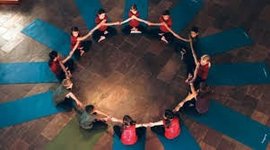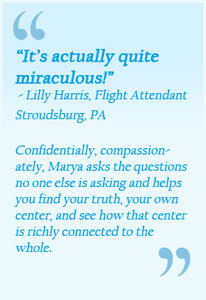Education for Loving the World

EDUCATION FOR LOVING THE WORLD
As thousands of speakers across the globe make notes, prepare outlines, and practice their diction to impart hard-earned wisdom to graduating classes this month, we must acknowledge this: students today face a more uncertain future than at any time in our history.
How do you encourage younger generations optimistically while the list of pollutants, species extinctions, glacial melting, extreme weather events, and the proliferation of nuclear weapons grows?
Rachel Carson, the author of the seminal conservation masterpiece, Silent Spring, did it in1962 by talking about choice and time, the stream that moves forward and takes humankind with it. “Your generation must come to terms with the environment. You must face realities instead of taking refuge in ignorance and evasion of truth. Yours is a grave and sobering responsibility, but it is also a shining opportunity.”
Our hope and our destiny reside in how well we accept that responsibility. Those who still cover their ears to the scientific fact are also those who shield their hearts from the honesty to admit what a dangerous world we are leaving for our children. Lying to the children is not helpful but preparing them with a compassionate education to behave responsibly is.
While most in older generations didn’t realize we were sacrificing sustainable life in favor of naïve and selfish material welfare, we can’t deny we’ve taken a huge toll on our only home. As we lose bees, destroy the cycle of life, heat glaciers, flood our cities, and breathe in industrial toxins, students around the world are worried and angry: their future hangs by a thread.
Only the most myopic and self-serving perceive a comfortable and safe future. We need to be honest and clear-eyed about the reality: this year’s graduates face the harshest reality of any generation in history, more sobering even than the darkest days of World Wars I and II. Still, I am impressed by the maturity and mastery that I see in students.
Yet for all their knowledge and wisdom, institutions of higher education have not been able to prevent the unskillful thinking and reckless actions which have threatened our air, food, and water, ignited climate change, and brought our planet to this precarious moment.
It’s a good time to ask the question: What’s an education for? What does it mean to receive an education today?
Education isn’t something that’s given to us like a cup of hot tea. Education invites us to take the initiative, to ask the hard questions, and to look evenly at all sides of an issue before making decisions.
In the past, education was based mainly on received custom and cultural biases. What most of us learned in public schools and colleges is how men – and a few women — have perceived and organized their experience, their history, their ideas of good and evil, health, disease, and social relationships. The great issues of our time have mostly been framed by men, especially white men, who have decided what is important. Some of that framing has been edifying and profound; some of it has created enormous contradictions that have shaped and limited our possible futures.
At Wellesley College in May 2004, writer Toni Morrison was among the first commencement speakers to address the possibility of a diminishing rather than an expanding future. “I’m not going to talk anymore about the future because I’m hesitant to describe or predict because I’m not even certain that it exists,” she said. “I’m not certain that somehow, perhaps, a burgeoning ménage a trois of political interests, corporate interests, and military interests will not prevail and literally annihilate an inhabitable, humane future.”
Environmentalist Paul Hawken called on students to remember the important rules of life “like don’t poison the water, soil, or air, don’t let the earth get overcrowded, and don’t touch the thermostat.” In May of 2009 at the University of Portland, he called on students: “You are going to have to figure out what it means to be a human being on Earth at a time when every living system is declining, and the rate of decline is accelerating. Kind of a mind-boggling situation.”
“This is the time we either will settle down as a species or completely wreck the planet,” said Professor E. O. Wilson in May 2011 at the University of North Carolina. Since then, things have worsened.
Fortunately, with a planetary reckoning at our doorstep, our children have gotten smarter, not necessarily in received social conditioning, but in authentic courage, clarity, and wisdom.
Consider 16-year-old climate activist Greta Thurnberg of Sweden, who expresses her dismay at adults. “You are stealing our future,” she says. “You only talk about moving forward with the same bad ideas that got us into this. We cannot solve a crisis without treating it as a crisis. If solutions within the system are so impossible to find, then… we should change the system itself.”
Consider the gravity of Parkland High students intent on gun legislation. Consider the International Rescue Committee aiding refugees in crisis. Consider the work of growing numbers of committed activists who support social change and work tirelessly to sustain humanity’s viable existence on Earth.
These are the stakes. What are the solutions?
We have to understand the emergency of the situation first and stop evading the truth: individual teachers and school systems have made valiant efforts to restore the soul of learning, but it’s challenging to speak about environmental catastrophes honestly without sounding alarmist. Every bit of data must be coupled with realistic action plans for reversing the trends.
Students around the globe are hearing the call. From using energy-saving lightbulbs to eating less meat, we do make a difference; each of us has power. As teachers, parents, and good neighbors, it is our responsibility to help them analyze and clarify the challenges ahead, not only for themselves and their families but for future generations.
Ask the students around you, what are YOUR solutions to the problems of today. You may be amazed at how brilliant they are!
Next time: Global Heat, the Military, and Memorial Day
To reach out to the author or receive more detail, please CONTACT AUTHOR
EVOLUTIONARY YOGA – MONDAYS @ 5:00 – 6:30 PM
KEALAKEKUA’S NEW THOUGHT CENTER OF HAWAII
Despite all the challenges, it is still a beautiful world! Know the joy of your True Nature. When you know who you really are, unconditional love centers you in your heart. Your natural radiance glows and your will, compassion, and active intelligence arise like a refreshing summer breeze. With asana, pranayama, chanting, Tibetan bowls, & heavenly mystical meditations.
Where: New Thought Center – 81-6587 Mamalahoa Hwy, C302 Pualani Terrace.
Light-Filled Space overlooking Kealakekua Bay
http://www.maryamann.com/calendar/month-view/


